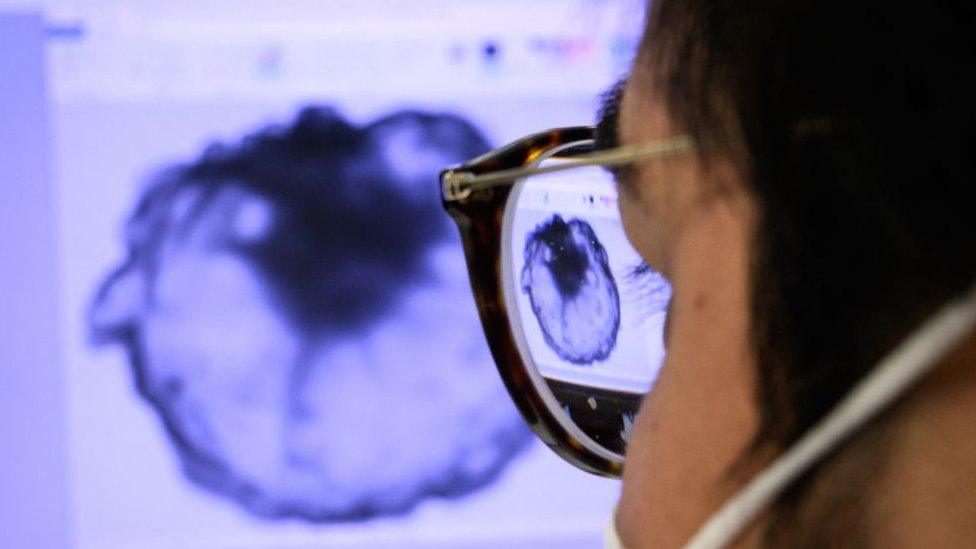UK-Swiss science deal as both barred from EU scheme
- Published

The UK science minister said the Swiss collaboration was the first of a series of planned science agreements (file pic)
The UK and Switzerland are striking a deal on science collaboration as both countries continue to be blocked from a major EU scheme.
Political tensions mean the two nations have been shut out from the EU's multi-billion pound Horizon programme.
There are no fresh funds as part of the UK-Swiss deal.
But Swiss ambassador to the UK Markus Leitner described it as a "political signal" to researchers to deepen existing ties and find new projects.
The agreement will be finalised on Thursday in London.
UK Science Minister George Freeman said: "Being a science superpower means deepening our international relationships with leading research and development economies like Switzerland."
The agreement will focus on areas including artificial intelligence and turning academic discoveries into start-up businesses.
The UK and Switzerland have been trying to join the EU's key funding scheme for research and innovation, Horizon Europe, which has a budget of €95.5bn (£81.2bn) over the six years to 2027.
But the UK left the EU in January 2020 and membership of Horizon has been held up in a dispute about post-Brexit trading arrangements for Northern Ireland, with London accused of treaty breaches.
Switzerland has never been a member of the European Union, but has dozens of bilateral deals with Brussels instead. Full Swiss participation of Horizon has been blocked after Switzerland rejected plans for an overarching treaty with the EU.
The EU programme brings together leading academic and industrial researchers from across member nations. People based in third countries can participate but cannot usually lead projects or access EU funds.
Ambassador Markus Leitner said the UK-Swiss deal was "separate" from its efforts to join Horizon, which remained a "priority".
The UK's associate membership to Horizon was agreed in principle under a Brexit treaty, called the Trade and Co-operation Agreement.
However, the European Commission has repeatedly pointed out that no binding deadline for association was specified within that agreement.
Resulting uncertainty for the sector and fears of a "brain drain" mean that ministers say they could soon pursue their own international scheme known as Plan B.
International agreements would form part of that alternative programme, along with new academic fellowships and funding for cutting-edge research.
But universities have said reverting to Plan B would be a "second-best" outcome, while the scale of the Swiss deal is no match for Horizon.
However, Mr Freeman told the BBC he plans more: "This Anglo-Swiss agreement is the first of a number I am negotiating. I was recently in Israel, which will follow next."
The head of Universities UK International, Jamie Arrowsmith, welcomed the Swiss deal but said the interests of everybody including global science would be "best served by all parties agreeing to remove political impediments, and proceeding to ratify UK and Swiss association to Horizon Europe".
There are jitters within the science and research community that the Treasury could seek to cut the £15bn that was earmarked for Horizon.
Billions of pounds worth of public spending cuts are expected by the Conservative government on 17 November.
Related topics
- Published1 June 2022

- Published11 October 2022

- Published31 August 2022

- Published21 October 2022
